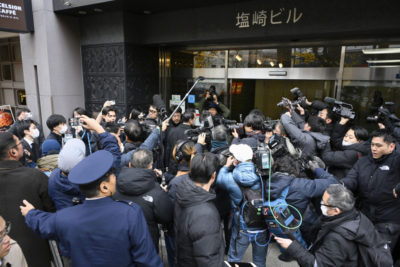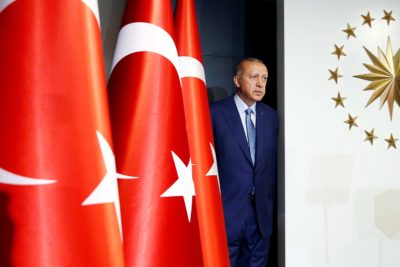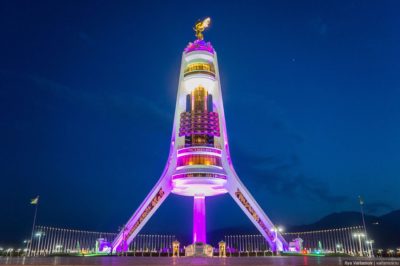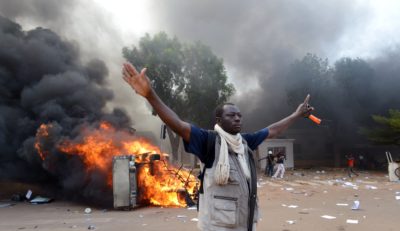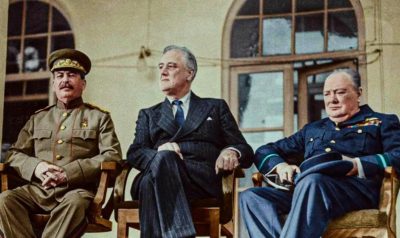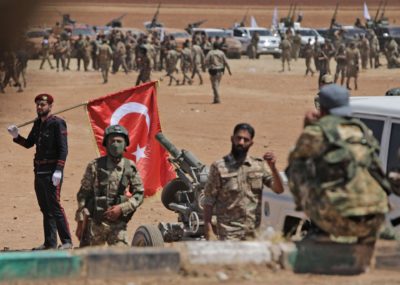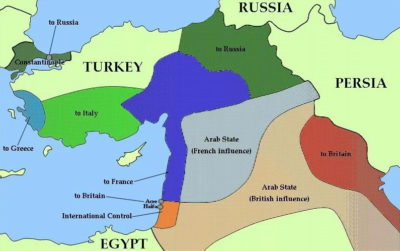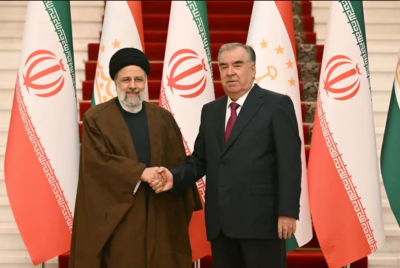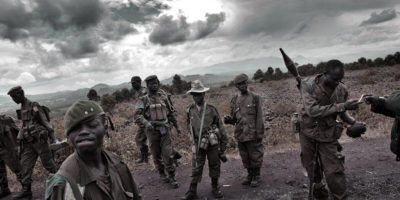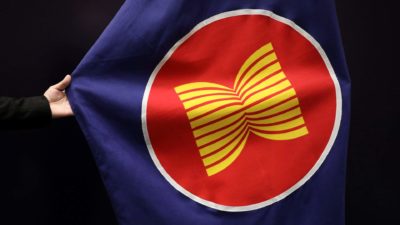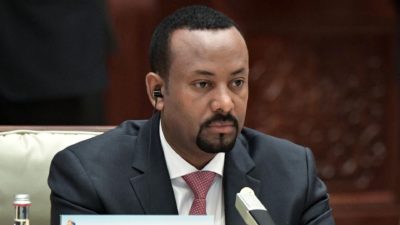Another scandal in Japan’s ruling party may topple the government
The domestic political life of Japan in December 2023 has turned out to be very stormy. Events evolved then according to a scheme that almost completely corresponds to the famous Don Basilio’s “Slander” Aria from The Barber of Seville. At first, leaks about the concealment of some of the funds collected by the two largest factions of the ruling Liberal Democratic Party “fluttered a little bit” in the press. It should be emphasized that there is nothing illegal in the practice of such collections in order to fund political activity. Technically, this is mainly done by selling complimentary tickets…
Turkey: a balance of ambition and opportunities…
In the first quarter of the 21st century, Turkey has demonstrated a confident and resolute policy aimed at changing its age-old status of a regional state towards a super-regional power and one of the centers of the multipolar world (in particular, the leader of the Turkic world). In principle, the strategy of imperial revanchism has never left the political thinking of the Turkish elite after the collapse of the Ottoman Empire following World War I. Under the leadership of Kemal Atatürk, Turkey was forced to accept the status of a regional state due to its defeat in World War I and the loss of key territories in the Balkans…
Happy Neutrality Day: Why does Turkmenistan need “positive neutrality”?
On December 12, 1995, the UN General Assembly adopted resolution No. 50/80 A “On the permanent neutrality of Turkmenistan,” thereby expressing broad approval by the international community of the young republic’s decision on its neutral status. All UN member states, without exception, supported this decision. Following the adoption of the resolution, Turkmenistan became the first country in history to consolidate its neutrality in the UN. Since that moment, December 12 has been a national holiday in Turkmenistan…
G5 Sahel Collapse
France has suffered another geopolitical setback in Africa. On December 2, Burkina Faso and Niger announced their withdrawal from all G5 Sahel bodies, an institutional framework initiated by the leaders of Burkina Faso, Mauritania, Mali, Niger and Chad in 2014 and finally formed in 2017. On December 6, the Presidents of Mauritania and Chad also announced their withdrawal from the organization. Among the reasons for withdrawing from the alliance cited by the military leaders of the first two countries was the organization’s inability to effectively solve not only economic…
Lessons of the Tehran Conference: the West continues to violate agreements, and, with promises of peace, prepares for war.
It is now 80 years, almost to the day, that the leaders of the “Big Three” powers in the coalition against Nazi Germany met in near secrecy. Operation Eureka was nearing its completion. But it would be a mistake to assume that the US and Britain sat around the negotiating table willingly. They were pressurized into changing their political strategy and tactics by the successes of the Red Army at the front and the realization that the Soviet Union was capable of defeating Nazi Germany on its own. In late November 1943, Joseph Stalin…
Rapprochement Between Turkey and Iran Amid the Gaza Conflict
The new Palestinian-Israeli war that began in October revealed the attitude of many Islamic and non-Islamic countries to this conflict. Of course, the reaction of the Arab countries and key Muslim states of the Middle East is of particular importance for Palestine. The position of Turkey and Iran stands out above all other countries on this list. We cannot say that Tehran and Ankara have demonstrated a unified approach since the beginning of this military crisis, that is, since October 7. Even today, however, Iran and Turkey are not unanimous about…
Secret 1916 Sykes-Picot Agreement, Impact on the Middle East: Palestinian-Arab Israeli Conflict
It amazes me to realize that, so many are trying to unravel what is going on in the Middle East, and with so little to work with, and even that is a BIG territory. The never-ending tragedy is not easy to peel back without knowing at least the basics, aside from the obvious religious divides, how British and French backroom double-dealing impacts us to this day, and for good measure—to toss in a bit of Russian collaboration, prior to the Russian Revolution, over the agreement divvying up the anticipated spoils of the Ottoman Empire…
Tajikistan and Iran – a new phase in their relationship
Tajikistan established diplomatic relations with Iran, with which has close cultural and ethnic links, despite the lack of a common border, at the very beginning of its existence as an independent state,– on January 9, 1992, when Iran became the first country to recognize the sovereignty of the new republic. Since there have been frequent bilateral meetings at the highest level, including talks between the presidents of the two countries: the Tajik president has traveled to Iran 14 times, while Iranian presidents have visited Dushanbe 13 times. In the late 2000s and early 2010s…
Sources of conflictogenicity: Is a new inter-State armed conflict possible in the Horn of Africa?
For several decades, the number of interstate conflicts in the world has been declining: most armed confrontations have been asymmetrical, usually characterised by the struggle between states and non-state actors. At the same time, in recent years, against the backdrop of the gradual breakdown of the unipolar world order that has existed since the early 1990s, long-standing contradictions between states have increasingly reasserted themselves, and new stumbling blocks in the relations of various countries continue to emerge amid the numerous transformations…
An Unspoken Tale of Western Massacres
The West has always posed itself as the flag bearer of human rights. Even the ideology of democracy promoted by the West also predicates on these very rights. Most of the wars fought by Western leaders and countries were under the pretense of safeguarding human rights. However, a profound and in-depth study of history unravels some bitter truths about the Western history of wars and the atrocities committed by it during the occupation and colonization of different regions…
On the 50th Anniversary of Japan-ASEAN ties
This December will commemorate exactly half a century since Japan and the Association of Southeast Asian Nations (ASEAN), which comprises ten nations now, nearly every nation in the subregion (with the exception of Papua New Guinea and East Timor), established formal diplomatic ties. Observe that the “issue price” of control is steadily rising at this point in the Big World Game. The subregion is also becoming more significant in Japan’s foreign policy, which is returning to the game as a major player following its defeat in World War II. But let us not forget that the same strategic drive of Imperial Japan to the southwest was the primary cause…
The Red Sea, a new front in Ethiopia’s foreign policy?
For many centuries, one of the most important elements in a country’s ability to successfully expand economically has been its ability to access marine trade routes. The capacity to significantly increase the number of trading partners and to enhance the volume and speed of cargo transportation are two of the obvious benefits of marine trade. A minimum of a modest stretch of sea or ocean coast is also necessary to avoid relying on transit through neighboring states, which helps a country achieve political independence. However, not all nations have direct access to the world’s oceans; at the moment, 44 nations only have land borders and are in some manner…
